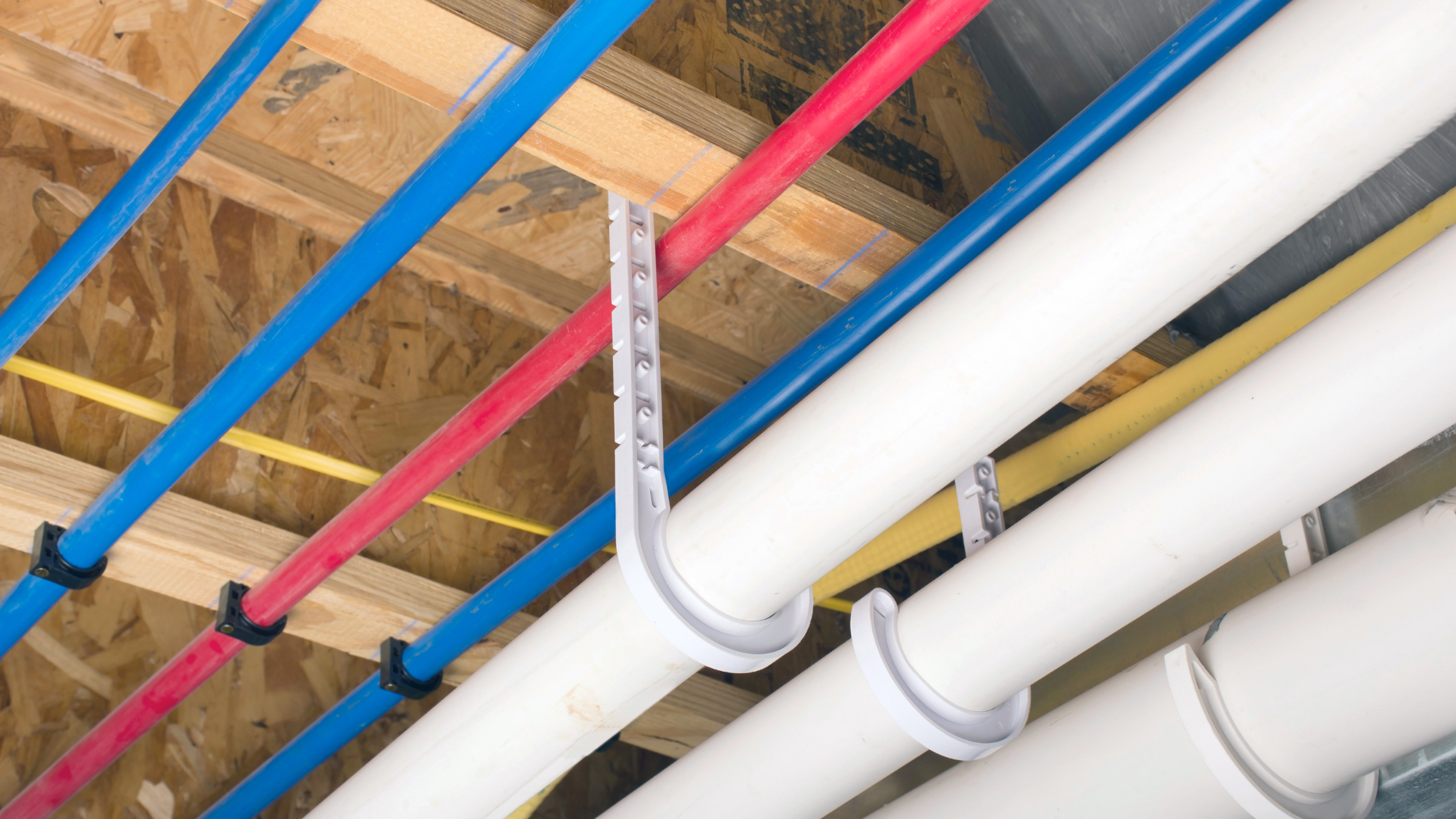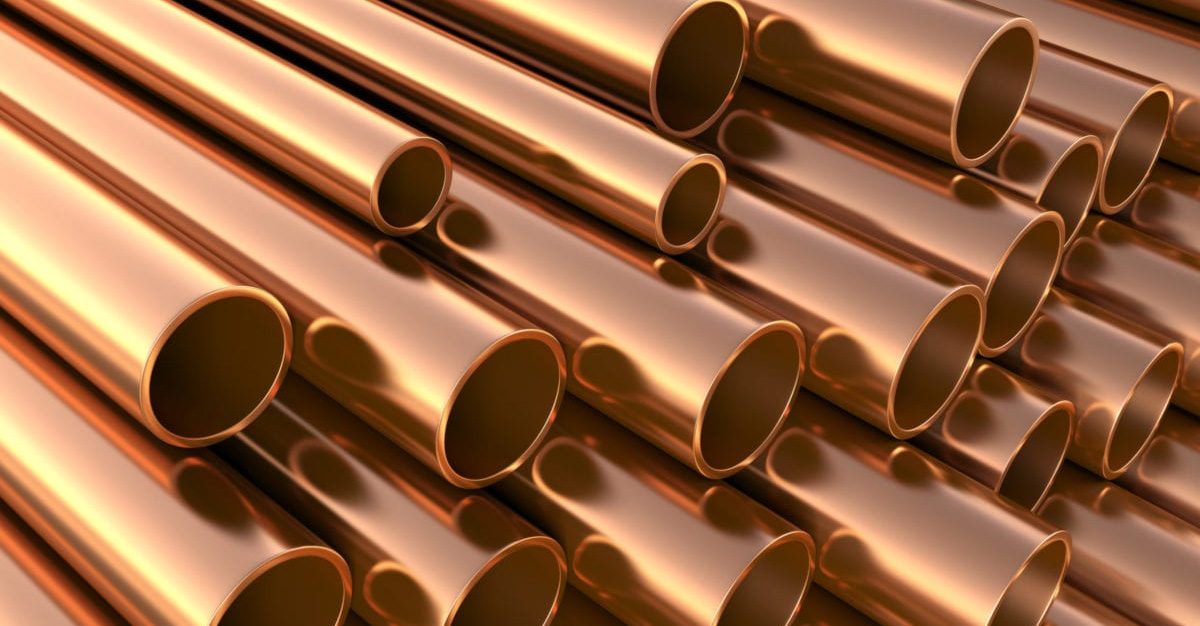7:00AM to 5:00PM
Like most homeowners, whether in the middle of new construction or home repiping, we don’t need to familiarise you with the horrors of a leakage. It’s a hassle to fix, but the more severe issue is that it compromises your family’s health. That is why choosing a suitable pipe is necessary for maintaining the sanctity of your home.
If you’re constantly troubled by pipe damage and leakage, it would be best to consider repiping. But knowing when to repipe is the key. Usually, after a couple of decades, all pipes start corroding, which disrupts the hot and cold water supply.
The two most common pipes available are copper pipes and pex pipes. Copper and pex are the most sought-after materials for fixing a leak. But which one should you purchase? Which is more budget-friendly or more long-lasting? Some would probably convince you the one with very little maintenance and less labour compared to other materials is the number one pick. Others would consider the flexible pipes a better choice. A flexible material sounds right for tight spaces instead of rigid copper, but there’s also soft copper to consider, especially for your heat pumps.
But there is no need to worry or get confused. Whether it’s a pex pipe or copper pipe, we’ll discuss the benefits of each material to help you decide which is the suitable material for you. Even if you have ample or less space, there will be a better choice and a perfect one for your home. And not just that, we’ll tell you too how environmental factors impact the quality of your pipe system.
You should know that there is no right or wrong material as both serve their purpose efficiently. That said, pex tubing or copper piping may be more suited to your home and knowing the benefits of each will help you make an informed decision.
Pex is more flexible. Plastic pipes and pex require fewer connections, allowing professional plumbers to connect the tubing easily for a smooth installation. It is because pex comprises cross-linking polyethylene material, delivering stability and attractiveness to your pipe system. It’s also available in different sizes, with the shortest being ¼ inches and the longest 4 inches.
On the other hand, copper is sturdy and one of the strongest metals for repiping. Choosing copper ensures that your pipes last longer, offering value for money.
Knowing more before deciding on matters is always better, and knowing which pipe is more suitable for you before buying is no exception. Will pex piping suit your lifestyle more? Or are you better off using copper? Check out the list below and see if your supposed pipe carrying water is pex or copper.
Understanding the water quality running through the pipes is critical for choosing a suitable material. Ask the plumber or building manager whether the water is acidic, chlorinated or neutral. If it’s the latter, you can use pex pipes. But it’s imperative to purchase copper for the former.
Similarly, water temperature determines which material works best in your home. Copper has higher resistance. It’s ideal for temperatures reaching over 80 degrees Celsius. At the same time, pex is more suited to cooler conditions.
As mentioned, pex is flexible and perfect for repiping hard-to-reach areas. It ensures smooth and easy installation for small and medium-sized apartments with crawl spaces and convoluted corners.
When redoing your pipeline, it’s crucial to consider maintenance and safety. Pex is the right choice on both counts, delivering long-lasting and reliable performance.
Copper is the best material for repiping in an open space exposed to external elements and animals like rodents. It can withstand extreme conditions while preventing animals from burrowing into the pipeline.
We suggest opting for pex if you’re renovating, as it costs less than copper and is easier to lay in narrow spaces. You won’t have to go through the hassle of breaking down walls. It also takes less time to clean. Copper is ideal for building a new home without solid structures. Laying copper pipes becomes more manageable with fewer obstructions. And they will last for many years before deteriorating.

While copper lasts longer, a pex pipe includes advantages you don’t want to miss.
Pex costs less than other piping solutions, so you can use it to meet your needs. It has fewer joints, so you can complete work quickly without compromising quality. It’s also highly resistant to hot and cold water, meaning you won’t face reliability issues.
We found that pex can expand or contract with the changing temperatures without incurring damage. As We’ve discussed, it has fewer joints, thanks to cross-linking polyethylene, which makes it incredibly flexible. It won’t burst, and stores heat inside the tube to help maintain optimum water temperature.
Due to its easy installation, plumbers won’t need to torch or use elbow fittings to join the pipe; it is convenient for repairs. Additionally, each pex pipe has a shut-off valve, ensuring it’s easy to stop the water supply during leakage.
However, there are also a few downsides to using pex pipes.
One of the cons of pex is if there is a problem with the outdoor supply line, it would be best not to use pex pipes. They are more suited for indoor plumbing and may not withstand external conditions.
While pex pipes can resist more excellent conditions, they are susceptible to a sharp fall in temperature. Frigid temperatures are their enemies. They operate by trapping heat within the pipeline; icy environmental conditions could hamper the water supply, leading to internal damage.
Once pex deteriorates, the only option is to use new material. So, it’s not eco-friendly, and you can’t recycle old pipelines.
You’ve seen the pros and cons of pex pipes. Now, let’s look at copper’s advantages for repiping.

it’s incredibly durable, leading to its growing popularity among customers. Your copper pipes will last a long time. Most brands also offer a substantial warranty, extending up to 50 years.
Copper is eco-friendly and remains in top condition after decades of heavy use. You can reuse copper pipes. This means there’s no need to buy new materials, which proves affordable.
As it’s also a naturally occurring element, it won’t give off toxic fumes in the event of a fire. Plus, it prevents bacterial growth and keeps your family safe.
Two types of copper pipes—hot and cold—are colour-coded according to their durability. Hot water pipes are red, while the latter are blue, and you can choose one based on your needs.
Using these pipes outside is also possible as they don’t deteriorate under UV rays. Moreover, proper copper pipe installation and maintenance can ensure your pipes never leak.
But while copper sounds impressive with its environmental impact, there are some disadvantages to this pipe, too, and you might not consider this the suitable material for you and your water supply line.
While copper sounds like a perfect option, new copper pipes cost a lot and are more expensive than pex; copper pipes cost three times more than pex. Also, copper pipes waste about 32% more water and energy than plastic pipes since they are conductive and easily affected by ambient temperature. You’ll need to have a flexible budget. It would be best to never compromise on quality. However, many people may hesitate to purchase copper because it is an affordable and efficient repiping option for pex.
Even cold copper pipes may freeze and burst, making them unsuitable for repiping in frigid temperatures. So, we suggest contacting a plumbing service who will guide you on the best material.
We believe you now have the basics and ideas to suit your homes and businesses best. You can now choose between pex plumbing systems or copper systems, which are the two most popular choices. What’s the best solution for your repiping needs and plumbing system? Whether you need flexible pipes for a small space or you’re looking for an environmentally friendly pipe, make sure both copper and pex pipes are correctly installed.
Pex cross-linked polyethylene offers excellent flexibility and resistance to scaling, making it an ideal choice for tight spaces. Unlike copper, it is easier to install and can reduce labour costs significantly.
However, irrespective of your choice, maintenance is the key, too! So it would be best to hire a plumbing service to look after the condition of the pipes now and then. For other issues concerning your plumbing systems, don’t waste time learning more and getting advice on a better option. Reach out to your local plumber today.
For the best residential plumbing services on the Gold Coast, choose Gold Coast Plumbing. Our expert team is ready to assist you with all your plumbing needs, whether stopping a water hammer or advising on copper tubing for your next project. Contact us today for a free quote via email, phone, or through our contact page. Let us help you keep your plumbing in top shape!